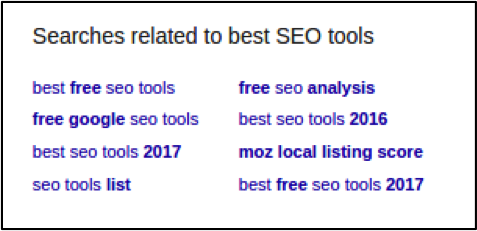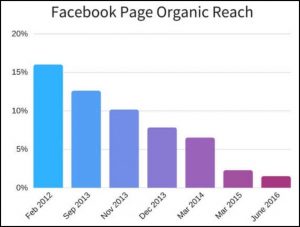— February 8, 2018
Artificial Intelligence or AI.
What comes to your mind when you hear these words.
A robot with a human face or a terminator. But we’re not talking about them here. We’re talking about super intelligent algorithms.
There are three different classifications of artificial intelligence:
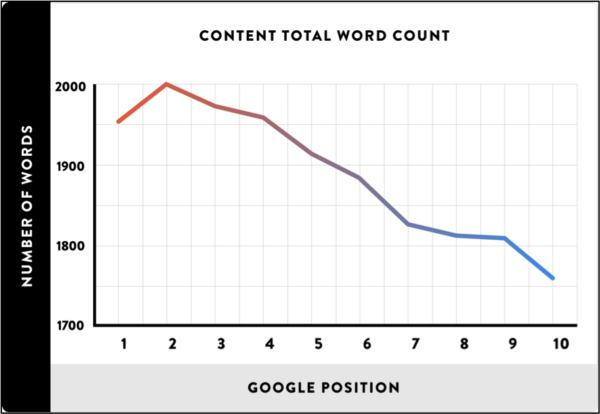
- Artificial Narrow Intelligence (ANI): When used for a single task.
- Artificial General Intelligence (AGI): When AI can perform different tasks. AGI is called only, when it performs tasks just like a human.
- Artificial Superintelligence (ASI): When AI performs tasks which are beyond the capability of a human, the ASI comes into existence.
Artificial intelligence is changing the face of technology and business. And it has also changed the face of SEO.
As you know, people made billions of searches on Google every day. And Google said that 15% of those queries had never been seen before.
It’s a huge number.
When you search for something, you need relevant and exact results from Google. And you just don’t type one or two words, we type a whole sentence.
When I enter a search query in Google “when was the wife of trump born” and hit enter. I got an answer about Trump’s wives and present wife as below, without even using their name:

How did Google find a relevant answer to my query? Google is using an AI algorithm to provide exact answers: RankBrain.
If you’re serious about SEO, you’ve probably heard about this term. Are you wondering what is RankBrain?
RankBrain is an AI algorithm that helps Google to understand and process the search query and come up with a definite answer. Google recently admitted that RankBrain is third most important ranking signal. Here’s how RankBrain process:
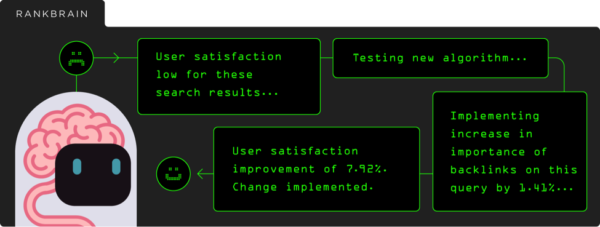
As you can see how fast SEO industry is changing and you also need to change your strategy to survive in this environment.
In this article, I’ll share 5 strategies that you should implement to win the SEO game. Take a look:
1. Keyword research in AI World
I’m sure you’re familiar with keyword research. Now Google understands the intent behind a search query. So you need to make your keyword research process more intelligent. Traditional methods are not sufficient.
Now it doesn’t make any sense to create a number of pages for a number of keywords. Let’s say, you have two keywords: “best SEO tools” and “top SEO tools”. You don’t need to create two pages (optimized around these keywords). Why?
Because RankBrain understands both terms are same and provide same answers to these queries. Check this out:
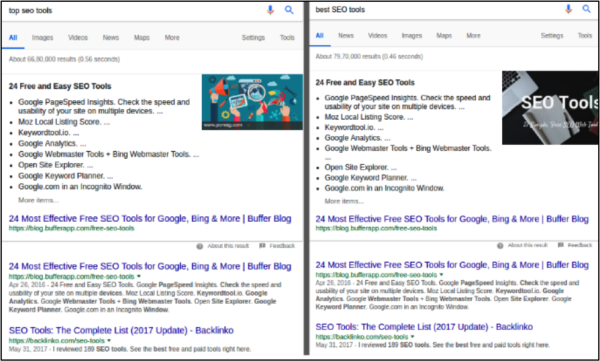
What should you do? Optimize your page around a single keyword and Google will rank this page for different relevant keywords. That’s the power of AI algorithm. Try to go through the ‘search related’ section to find more keywords phrases to be targeted.
2. Focus on content quality and relevance
Suppose you search a query in Google and visit one of the search results, you find the content helpful and spends some time reading it. It tells Google that users are loving this page, let’s give it a higher spot.
And if you don’t find the content relevant and leave the page in just 2-3 seconds. It tells Google that page isn’t relevant, let’s give it a lower spot.
Google AI measure the content relevancy and the time spend on the page. What does it mean for you?
Create long and in-depth content. Break it into headings, subheadings and bullet points. Backlinko analyzed 1 million Google search results and found that long-form content ranks higher than short-form content.
Provide real value and answer what a user is asking. Google loves it.
3. Age of Mobile
Do you only think about SEO for desktop? If yes, then think again.
We live in the age of mobile devices and people want answers at their fingertips. Nearly According to Google, 40% of users search on their smartphones in an average day. If you’re not optimizing your website and SEO for mobile, you’re leaving a great opportunity. Why? Check out this:
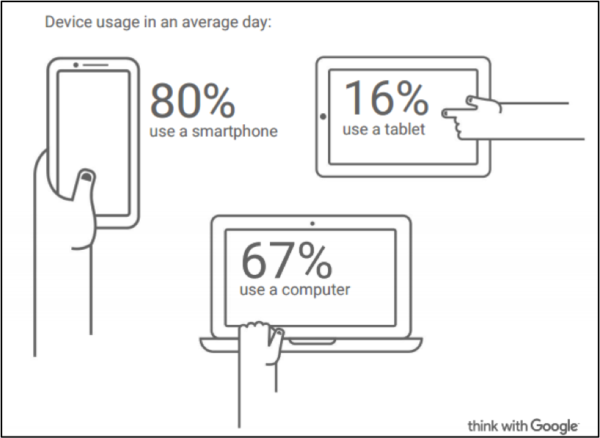
Mobile search is becoming the SEO future. Optimize your website for mobile for the visitors who access your site from the mobile devices. How can you figure out if your website is mobile friendly? Just do a mobile-friendly test here.

4. Optimize for Voice Search
Voice search is changing things for SEO. Voice search comprises about 50% of all mobile searches. It’s something you should embrace. It can do a great job of helping users find exactly what they want when they’re asking for it by voice.
Siri, Google Now, Alexa and Cortana are really popular voice assistants. They can perform tasks for you like, set a time, play a song, read the news, buy something on Amazon, provide direction, and search for restaurants in your local area.
We’re too lazy to type. As Rand Fishkin said, “voice searches are getting longer and more conversational.”
5. Chatbots are the great opportunity
Probably you’ve heard about the chatbots. Most of the big brands are using chatbots to provide an advanced user experience and making the purchase easier.
Check out Poncho Chatbot (weather updates) on Facebook messenger. It asks relevant questions to you and comes up with the best answers.
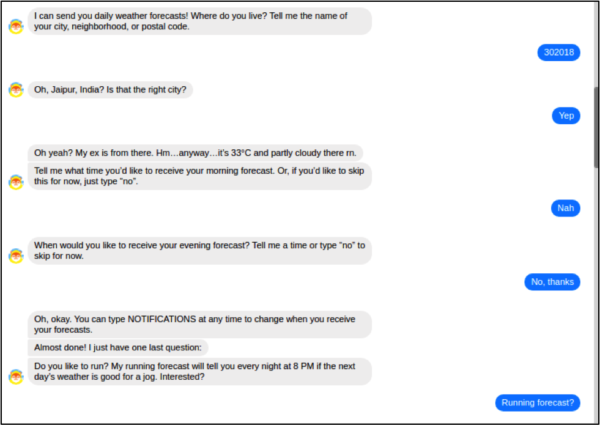
Are you wondering what is Chatbot?
Here’s the definition from Chatbots Magazine:
“A chatbot is a service, powered by rules and sometimes artificial intelligence, that you interact with via a chat interface.”
A Chabot behaves like a human and actively participate in the conversation in a natural manner. The best part? They don’t sleep and provide the customer support 24*7.
Fernando Angulo, the head of International Partnerships at SEMrush, shared his take:
“Here’s how I see chatbots as an opportunity for eCommerce SEO. First of all, and this one’s the obvious layer, chatbots can and do increase dwell time and decrease bounce rate, and these are ranking factors. The user can get easily caught up in a conversation with a bot, so they’ll naturally stay on the page longer.”
Chatbots can take your customer experience to the next level. 80% of businesses said they already used or planned to use chatbots by 2020.
If you’re not using chatbots, it’s perhaps the best time for the smaller businesses to implement the same. The chatbots are the journey towards the better sales.
Digital & Social Articles on Business 2 Community
(83)
